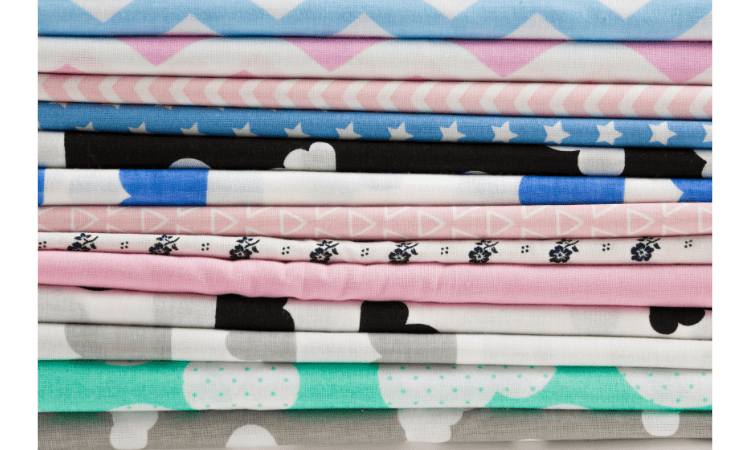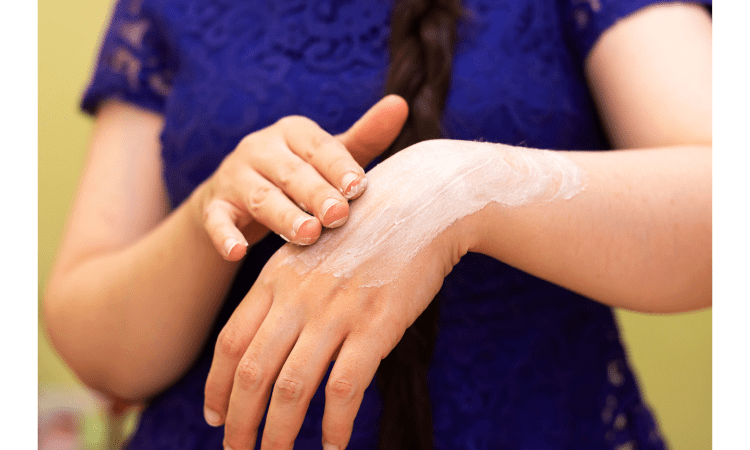
Clothing is an essential part of our daily lives, but did you know that new clothes can sometimes irritate your skin? This can be a frustrating experience, especially when you’ve just invested in a brand new outfit. So, why do new clothes irritate the skin? And, what can you do to prevent this from happening?
It’s essential for all of us to take good care of our skin. Whether you’re dressing up for a special occasion or just getting ready for the day, your clothing can play a significant role in keeping your skin healthy and comfortable. However, it’s not uncommon for people to experience skin irritation from new clothes, which can be uncomfortable and even painful. In this blog post, we’ll dive into the reasons behind skin irritation from new clothes and provide tips on how you can prevent it. By the end of this post, you’ll have a better understanding of how to keep your skin looking and feeling its best, even when wearing new clothes.
Reasons for Skin Irritation from New Clothes: Uncovering the Causes
Have you ever put on a brand new shirt or pair of pants, only to find that your skin starts to itch and burn shortly after? Unfortunately, this is a common experience for many people, and a variety of factors can cause it. In this section, we’ll take a closer look at the most common causes of skin irritation from new clothes, so you can better understand why it happens and how to prevent it in the future.
Chemical Residues:

One of the most common causes of skin irritation from new clothes is the presence of chemical residues. During production and finishing, clothes may come into contact with harsh chemicals, including dyes, bleaches, and formaldehyde. These chemicals can irritate the skin, causing itching, burning, and redness.
Formaldehyde is one of the chemicals used in manufacturing to help prevent wrinkles and the shrinking of fabrics. It’s also used as a preservative in clothing that comes straight from the factory. The reaction you’re describing is likely due to the formaldehyde in new clothing. Formaldehyde is an organic compound used as a preservative, and it’s responsible for many of the reactions people experience when they wear new clothes. The chemical bonds with proteins like keratin (which is found in human skin, hair, and nails), causing irritation and allergic reactions.
If you’re sensitive to formaldehyde, be sure to check for it on the label of any new clothing items you purchase. If the label says “formaldehyde-treated,” then you’ll need to wash your new item before wearing it more than once or twice.
Textile or Rough fabric

Textile fibers are the raw materials that go into making clothes. There are two types of textile fibers: natural and synthetic. Natural fibers include cotton, linen, wool, and silk. Synthetic fibers include polyester, nylon, acrylic, and polypropylene.
These fibers come in a variety of sizes and shapes. Some have a smooth surface; others have a rough surface or an uneven surface. The size, shape, and surface characteristics of these fibers determine how they feel against your skin when you wear them—and that can make a big difference in how comfortable it feels to wear them.
It’s important to keep in mind that just because a fabric is made from natural fibers doesn’t mean it’s good for your skin. For example, cotton has been used for centuries as a material for clothing because it’s soft and comfortable—but some people may be allergic to it or sensitive to its natural oils (which can cause itching). New clothes are a joy, but sometimes they can cause problems for your skin. The main culprits are synthetic fabrics like polyester and acrylic, which have been shown to increase the likelihood of developing contact dermatitis—an itchy, red rash that can develop when you come into contact with an allergen.
The best way to determine whether or not you’ll be sensitive to any particular fabric is by trying it on before purchasing something made with it.
Allergic Reactions:

Some people may experience skin irritation from new clothes due to an allergic reaction to the fabric or the dyes used to color it. Some people may be allergic to certain fibers or other components of new clothes. If you have a history of allergies or sensitive skin, it’s especially important to be mindful of the clothes you wear and to take steps to prevent skin irritation.
Tight-Fitting Clothes:

Tight-fitting clothes can irritate your skin because they put pressure on it. The pressure of the clothing can cause your skin to swell, which can lead to an allergic reaction and rash. Tight clothes may cause issues because they can pull on the skin and cause friction. This friction can lead to irritation or even an allergic reaction if you have sensitive skin. Tight-fitting clothes can also cause chafing and rashes due to rubbing against the skin. Wearing tight-fitting clothes for long periods of time can also cause skin problems like eczema and dermatitis, which are characterized by redness, itching, and flaking.
Lack of Breathability:

New clothes that are made from synthetic fibers or other non-breathable materials can trap sweat and other moisture against your skin, causing irritation and discomfort.
Accessories of clothes

The accessories of clothes, such as buttons and zippers, can irritate your skin if they rub against it. The friction can cause tiny cracks in the skin, which are then more vulnerable to infection. To avoid irritation, always wear clothes that fit properly and are loose enough that they don’t rub against your skin. Studs, zips, buttons, and buckles can pose allergy problems too, especially if the items contain nickel. New clothes can be irritating to the skin because they may contain chemicals that are not good for your skin. The newness of the clothes also makes them more likely to cause irritation, as they will be stiff and scratchy.
By understanding the causes of skin irritation from new clothes, you can take steps to prevent it from happening. In the next section, we’ll discuss some practical tips and tricks for keeping your skin healthy and comfortable, even when wearing new clothes.
Prevention Methods: Keeping Your Skin Healthy and Comfortable
Now that we’ve explored the most common causes of skin irritation from new clothes, it’s time to talk about what you can do to prevent it. As a dermatologist and skincare blogger, I know that skin irritation from new clothes can be a real issue for many people. Whether you have sensitive skin or just want to take good care of your skin, these tips and tricks can help you stay confident and comfortable, even when wearing new clothes.
Wash New Clothes Before Wearing:

One of the most effective ways to prevent skin irritation from new clothes is to wash them before wearing them. This can help remove any chemical residues, allergens, or irritants that may be present on new clothes, reducing the risk of skin irritation. If you’re particularly sensitive, you may also want to consider using a fragrance-free laundry detergent when washing new clothes.
Opt for Soft, Breathable Fabrics:

Another important factor in preventing skin irritation from new clothes is choosing soft, breathable fabrics. Cotton, linen, and silk are all good options, as they are soft and breathable, reducing the risk of skin irritation. Avoid fabrics that are synthetic or treated with chemicals, as they are more likely to cause skin irritation.
Avoid Tight-Fitting Clothes:

Tight-fitting clothes can rub against your skin, causing irritation and discomfort. To prevent this, choose clothes that fit well but are not too tight. This can help reduce friction against your skin and prevent skin irritation.
Apply a Barrier Cream:

If you’re prone to skin irritation from new clothes, consider applying a barrier cream before putting on your clothes. Barrier creams can help protect your skin from irritants, reducing the risk of skin irritation. Look for barrier creams that are fragrance-free and free from other potential irritants, such as alcohol or preservatives.
By following these tips and tricks, you can keep your skin healthy and comfortable, even when wearing new clothes. With a little bit of care and attention, you can avoid the discomfort and pain associated with skin irritation from new clothes and enjoy all the benefits of dressing well. So, take care of your skin, and
Conclusion: Protecting Your Skin and Enjoying New Clothes
In conclusion, dermatologists believe that skin irritation from new clothes is a common experience for many people, but it can be prevented with a few simple steps. By understanding the causes of skin irritation, choosing soft, breathable fabrics, avoiding tight-fitting clothes, and applying a barrier cream when necessary, you can keep your skin healthy and comfortable, even when wearing new clothes.
Whether you have sensitive skin or just want to take good care of your skin, these tips and tricks recommended by dermatologists can help you stay confident and comfortable, no matter what you wear. So, next time you’re shopping for new clothes, keep these tips in mind and enjoy all the benefits of dressing well, without the discomfort and pain of skin irritation.











